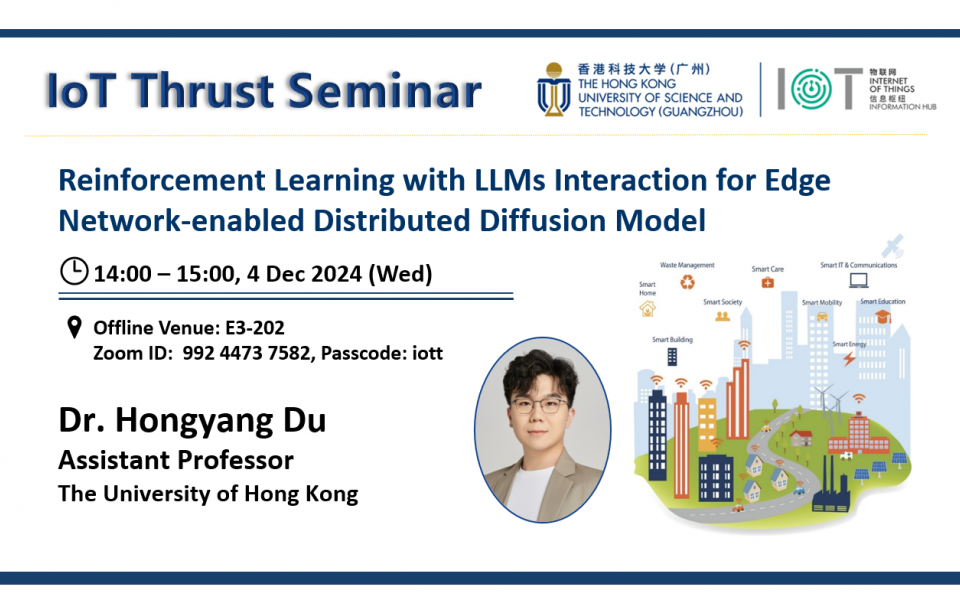IoT Thrust Seminar | Reinforcement Learning with LLMs Interaction for Edge Network-enabled Distributed Diffusion Model
In the rapidly evolving field of generative artificial intelligence (GenAI) and AI-generated content (AIGC) services, generative diffusion models (GDMs) have garnered widespread attention due to their extensive application and exceptional performance, supporting a series of applications such as Stable Diffusion, Sora, and others. Despite their success, the deployment of GDMs faces significant challenges, particularly in aligning generated content with individual user preferences and ensuring production efficiency. This presentation introduces a novel user-centric interactive AI approach for edge network-enabled distributed GDM-based AIGC service framework, prioritizing efficient and collaborative GDM deployment. Specifically, we restructure the GDM’s inference process, i.e., the denoising chain, to enable users’ semantically similar prompts to share a portion of diffusion steps. Furthermore, to maximize the users’ subjective quality-of-experience (QoE), we present a reinforcement learning with large language models interaction (RLLI) approach, which utilizes large language model (LLM)-empowered generative agents to simulate user feedback, providing real-time and subjective QoE feedback that reflects the spectrum of user personalities. In conclusion, this presentation seeks to explore the reciprocal relationship between "GenAI for Network" and "Network for GenAI," aiming to achieve more efficient, intelligent, and sustainable next-generation network services.
Hongyang Du is an assistant professor at the Department of Electrical and Electronic Engineering, The University of Hong Kong. He received the PhD degree from the Nanyang Technological University, Singapore. He serves as the Editor-in-Chief assistant of IEEE Communications Surveys & Tutorials (2022-), the Editor of IEEE Transactions on Vehicular Technology (2024-), and the Guest Editor for IEEE Vehicular Technology Magazine. He is the recipient of the IEEE Daniel E. Noble Fellowship Award in 2022, the IEEE Signal Processing Society Scholarship in 2023, and the Singapore Data Science Consortium (SDSC) Dissertation Research Fellowship in 2023. His research interests include generative artificial intelligence (GenAI), edge intelligence, semantic communications, and resource allocation.
